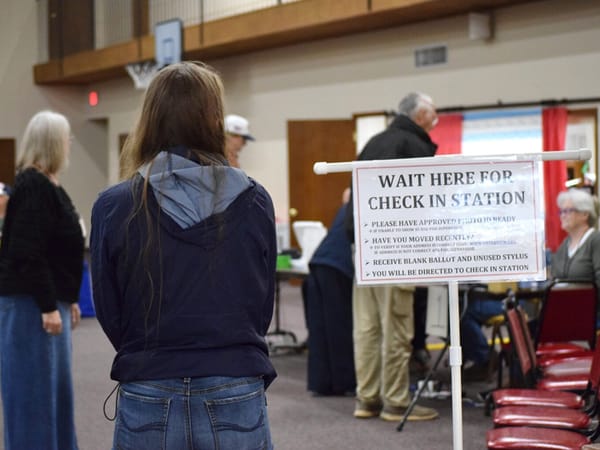The Governor’s Dream Project Meets Harsh Reality in Franklin County
Governor Sarah Huckabee Sanders’ $1 billion Franklin County prison plan faces resistance from lawmakers, local critics, and water scarcity issues that threaten its future.

Governor Sarah Huckabee Sanders’ proposed $1 billion prison in Franklin County is facing significant challenges, with support waning even among Republicans.
The Arkansas Legislative Council recently set aside a $57 million contract to design the 3,000-bed facility, a move that signals Sanders lacks the votes necessary to advance the project.
Supporters maintain that new prisons are needed as existing facilities approach capacity, citing incidents like the Ozark Mountain escape as evidence. Yet the Franklin County plan has faced unusually sharp criticism, including from some of Sanders’ longtime allies.
Lawmakers are now preparing for a Sept. 9 hearing before the Joint Performance Review Committee, where administration officials will be questioned about what critics describe as poor planning, a lack of transparency, and political missteps.
Mounting Resistance
The choice of Franklin County has faced resistance since the project was first announced last Halloween. Critics say the site fails to meet several basic criteria established for selection. These include a county population of at least 30,000 to ensure an adequate workforce, proximity within two miles of an interstate or federal highway, and water and sewer capacity capable of handling 300,000 to 500,000 gallons per day. By contrast, test wells drilled in August at the proposed site north of Charleston produced only 3,100 gallons daily. Officials in both Fort Smith and Ozark have said they cannot supply the prison through a pipeline.
“The lack of water makes the prison unfeasible at this site,” said Adam Watson, an organizer with the grassroots campaign opposing the project. “At the end of the day, the facts have not changed since day one. I think we honestly could have just sat on our hands and not said a thing.” Watson added that water scarcity is likely just the first of many problems. “I think we are going to face similar issues at every step of the way.”
Sarah Moore, executive director of the Arkansas Justice Reform Coalition, argued that the plan was flawed from the beginning and urged lawmakers to explore alternatives.
“We said things like, ‘We need more robust reentry services.’ Yet they have not happened,” Moore said. “We know that county jails are mostly full of pretrial individuals, people not convicted but accused, who are languishing because they are too poor and do not have 100 dollars to be able to buy their freedom.”
Moore also questioned the financial promises tied to the project, calling them unrealistic.
Sanders Pushes Ahead
Despite these concerns, the state paid nearly 3 million dollars for the property without first conducting a full investigation into water availability. Sanders has positioned the prison as the centerpiece of her criminal justice agenda, arguing that Arkansas needs additional capacity to reduce the backlog of state prisoners housed in county jails.
Her incarceration-focused approach, in a state that already ranks among the highest in the nation for imprisonment, is projected to increase the prison population by 25 percent over the next decade.
Yet the very policies driving the demand for more space may now be undermined by a lack of planning. If the state is forced to find a new site, the timeline could be pushed back by a year or more. Sanders also risks entering her re-election campaign without tangible results to show for the political capital invested in the project.
Scrutiny of Contractors and Leadership
The Sept. 9 Joint Performance Review Committee hearing was prompted by a petition signed by more than 1,200 opponents. Organizers want lawmakers to subpoena both Sanders and her corrections secretary, Joe Profiri.
Profiri has drawn controversy since being fired by the Board of Corrections and later rehired as a senior aide in the governor’s office with a $184,000 salary and vague duties. Critics question his role in selecting a site that appeared unsuitable from the start.
Lawmakers may also examine Vanir Construction Management, the California-based firm managing the project under a $16.7 million contract. The company has already received $400,000 and another $50,000 for drilling test wells.
Vanir has faced criticism for billing the state for first-class flights, alcohol, and luxury hotels. State auditors flagged the charges, and Senators Stubblefield and Bryan King, R-Green Forest, accused the firm of lacking candor and cooperation.
The company also gave lawmakers water flow estimates later contradicted by a state report. Even Vanir’s most optimistic figures fell far short of the 300,000 to 500,000 gallons per day required.
Looking Ahead
With water shortages, political opposition, and costs exceeding $1 billion, opponents of the Franklin County prison are cautiously optimistic the plan will collapse.
For Sanders, pushing the project further could backfire, leaving her signature criminal justice initiative in jeopardy. The plan now stands at a crossroads, and its future may depend on how lawmakers and the public respond in the coming weeks.





